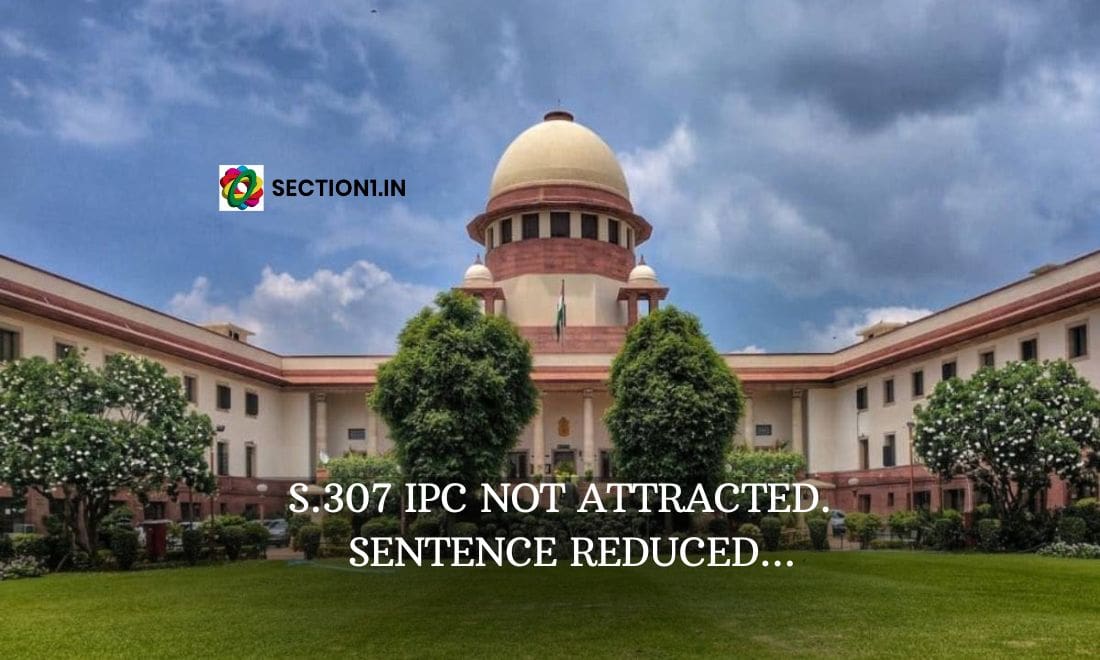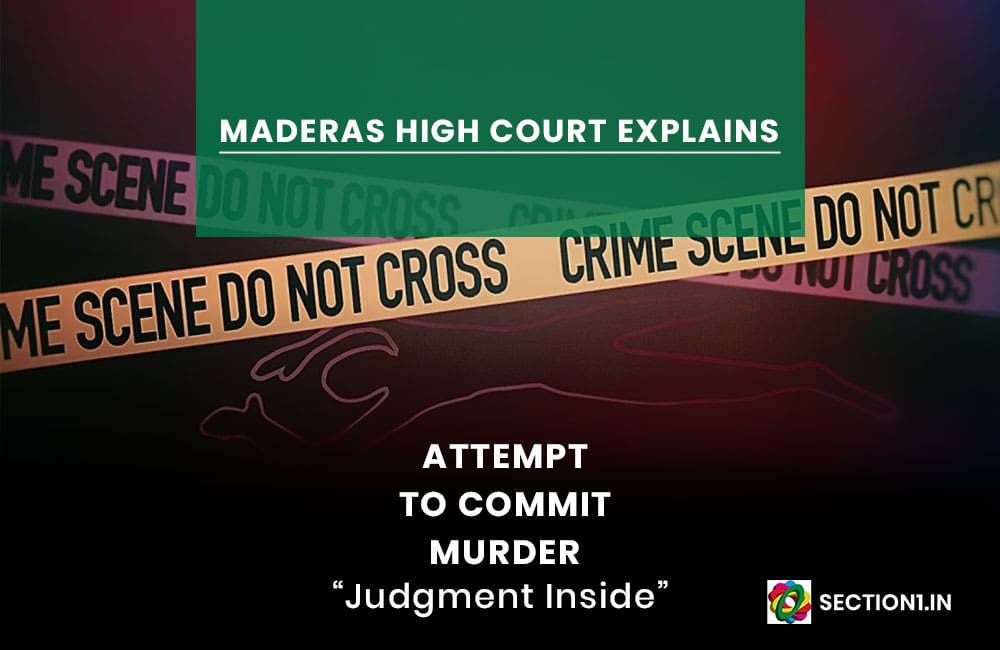Appeal & Prayer
Criminal Appeal filed under Section 372 r/w 401(5) of the Code of Criminal Procedure, praying to call for the records and to set aside the judgment dated 09.04.2014 passed by the learned Additional Sessions Judge, Dharmapuri, Dharmapuri District in S.C.No.9 of 2014.
The present appeal has been filed praying to set aside the judgment of acquittal passed by the learned Additional Sessions Judge, Dharmapuri dated 09.04.2014 in S.C.No.9 of 2014.
Trial & Acquittal
2.The appellant herein is the victim in the alleged occurrence. Upon the complaint lodged by one Santhamoorty, the respondent police registered a case in Crime No.108 of 2012 under Section 174 Cr.P.C. After completing investigation, they filed a final report alleging that the respondents 2 to 5 / accused 1 to 4 are liable to be convicted under Sections 323 and 306 of IPC. Based on the final report, the trial Court framed the charges as against the respondents 2 to 5 for the offences under Sections 323 and 306 of IPC. After elaborate trial, by judgment dated 09.04.2014, the learned Additional Sessions Judge, Dharmapuri, came to the conclusion that the charges framed against the accused / respondents 2 to 5 are not proved beyond reasonable doubt and passed an order of acquittal.
Victim is the appellant
3.Challenging the same, the appellant, who is P.W.2 in the above referred case, filed this appeal.
Case of the prosecution
5.1.The deceased Mahesh and the accused are neighbours. The deceased having wife (P.W.2) and 2 children. One Abinaya, who is the relative of the accused, is an unmarried minor girl, with whom, the deceased was having love affair. The same was questioned by the accused. Consequentially, as a result of which, on 01.05.2012 in the tiffin stall run by P.W.5, the accused assaulted the deceased and thereby, he consumed poison and died. During such occurrence, P.W.1, who is the friend of the deceased Mahesh got information from the said Mahesh through phone that he has consumed poison. So, P.W.1 went to Pudhupatti where the deceased was present and after seeing the P.W.1 took him to Pappireddipatti Government Hospital and later, he informed the matter to the relatives of P.W.2. Despite necessary treatment given to the deceased, the said Mahesh has died. Thereafter, P.W.1 lodged a complaint under Ex.P1 in A.Pallipatti Police Station.
Hon’ble Madras high court after analysed the framing of charges, evidence recorded, statement recorded under section 313 Cr.P.C and the judgment has analysed and held as follows:
Trial court judgment
20.The learned Additional Sessions Judge, Dharmapuri, after perusing all the above materials and on considering the arguments advanced by either side, acquitted the accused from the charges. Aggrieved over the said judgment of acquittal, the appellant, who is the wife of the deceased is before this Court with this appeal.
Appellant Side contention
22.The learned counsel for the appellant would contend that due to the attack made by the accused, the deceased consumed poison and committed suicide. Therefore, by way of attacking the deceased, all the accused abetted him for committing suicide. He would further submit that the trial Court without considering the same as only due to the attack made by the accused, the deceased committed suicide, after citing the erroneous reasons, acquitted the accused, which is liable to be set aside.
Respondent Side contention
24.On the other hand, the learned counsel for the respondents 2 to 5 made submission as the act committed by the accused are all not come into the ambit of Section 107 of IPC. Further, the deceased herein committed suicide, after 5 days from the date, on which, the accused assaulted him. Therefore, the said act committed by the deceased, is not within the scope of abetment and therefore, the judgment of acquittal passed by the trial Court, is within four corners of law.
Analysis by the High court
27.Therefore, the said evidence given by those witnesses categorically proved that, after 5 days from the date of attack, the deceased consumed poison. In respect to the interregnum period, there was no evidence from the side of the prosecution as after the assault made by the accused, on 28.04.2012 under whose custody the deceased was found available. In fact, P.W.2 is the wife of the deceased gave evidence as she is unable to contact her husband during such time. Therefore, it would necessary to see whether the attack made by the accused amounts to abet the commission of such suicide or not.
Application of law
28.It is settled law the gravamen of the offence punishable under Section 306 of IPC, is abetting suicide. Section 107 IPC defines abatement as comprising;
“(a) instigation to commit the offence;
(b) engaging in conspiracy to commit the offence; and
(c) aiding the commission of an offence.”
29.Further, it is settled law that the abetment involves a mental process of instigating a person or intentionally aiding a person in doing of a thing. Without a positive act on the part of the accused to instigate or aid in committing suicide, conviction cannot be sustained. The intention of the legislature and the ratio of the cases decided by the Supreme Court are clear that in order to convict a person under Section 306 IPC, there has to be a clear mens rea to commit the offence. It also requires an active act or direct act which led the deceased to commit suicide seeing no option and that act must have been intended to push the deceased into such a position that he committed suicide.
Application of law in the present case: Attack made by the accused did not instigate the deceased
30.Here, it is a case, since the alleged attack committed by the accused had happened 5 days prior to the occurrence, it cannot be said that the attack made by the accused is provoke or instigate the deceased to commit suicide. The word ‘instigate’ literally means to goad, urge forward, provoke, incite or encourage to do an act. But, in this case, after such occurrence, the whereabouts of the deceased were not known to others for a period of 5 days. The evidence let in by the prosecution did not say about the whereabouts of the deceased and therefore, it cannot said that the consumption of poison, is the direct result of the attack made by the accused. Before the trial Court, the witnesses examined as P.W.1 to P.W.4 are all spoken about the occurrence as the accused attacked the deceased, in otherwise, the said incident happened on 28.04.2012, P.W.11 alone stated that he has seen the occurrence. In fact, the actual eye witnesses, P.W.5 and P.W.10 had clearly stated that A-1 to A-2 alone assaulted the deceased. In the said circumstances, the evidence let in by the prosecution witnesses, are not sufficient to accept the case of the prosecution as all the accused had attacked the deceased at the relevant point of time i.e. on 28.04.2012.
31.Furthermore, there is external injury found on the body of the deceased. In the said circumstances, the contradictions available in the evidence given by the prosecution witnesses also raised a doubt whether all the accused attacked the deceased or not. Accordingly, in this aspect also, the case of the prosecution is unbelievable that on 28.04.2012 all the accused herein attacked the deceased.
Law regarding setting aside the acquittal
32.The another one aspect, which is necessary to decide in this appeal is that, it is settled law that before setting aside the judgment of acquittal, it would necessary to see whether the judgment rendered by the Court below may result in grave miscarriage of justice or the same patently illegal.
33.Applying the said principle with the case in hand, the ingredients for abetment, which are all necessary under Section 107 of IPC is not available in this case. Further, the evidence given by the prosecution witness would go to show that the love affair having by the deceased with one Abinaya was objected by the accused and due to the failure of the love affair with the said lady, the deceased may attempted to commit suicide.
Conclusion: Appeal dismissed
34.Accordingly, applying the said decision with this case, herein also, this Court do not find any patent illegality in the judgment rendered by the trial Court. Further, if the deceased consumed poison due to the failure of the love affair with Abinaya, for the same the accused are held no way responsible. Accordingly, in view of the fact, in respect to the occurrence, two views are possible, it is necessary to acquit the accused.
35.Resultantly, this Criminal Appeal is dismissed
Party
Mangaiyarkarasi, W/o.Mahesh … Appellant / P.W.2 versus 1.The Inspector of Police, A.Pallipatti Police Station, Dharmapuri District. Ors … Respondent /Complainant – Citation: Crl.A.No.495 of 2019,dated on 21st March 2022 – Coram: The Honourable Mr.Justice R.Pongiappan
https://www.mhc.tn.gov.in/judis/index.php/casestatus/viewpdf/644782
Mangaiyarkarasii.__vs_.The_Inspector_of_Police,_A.Pallipatti[1]
Further study
SECTION 306 IPC – INFORMANT HAS NO RIGHT TO WITHDRAW COMPLAINT OF A NON-COMPOUNDABLE OFFENCE







2 Comments
[…] Section 306 IPC: Prosecution failed to prove that the attack of the accused instigated the deceased … […]
[…] brothers. All of them were married except the deceased. On 5th March 2020, the deceased allegedly committed suicide by consuming poison. There was a dispute between the deceased and his elder brother Baskar @ Annamalai. Another brother […]